Category: Cardinal Quarter
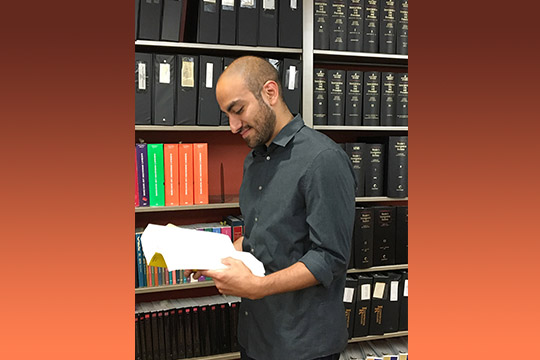
“The arc of the moral universe…”
By Oscar Sarabia Roman, ’17 (Public Policy)
Soon after starting my Public Interest Law Fellowship at the ACLU Immigrants’ Rights Project (IRP), I realized that impact litigation work is a slow process. The process focuses on big-picture outcomes and involves loads of abstract legal theory that apply to cases that may take years or decades to resolve. However, the attorneys never lost sight of how their work and, by extension, my work as an intern, contributed to the ultimate goal of achieving justice.
I was inspired and uplifted by all of the progress made by the ACLU IRP and by the ongoing battles these passionate attorneys are still pursuing. While it is easy to get lost in the legal proceedings, they never lost sight of the individuals they were helping and of the grand scale of their project. They never lost touch with their humanity or with the larger purpose and made sure I never did either. Their commitment reflects the famous quote by Martin Luther King Jr. who once said that, “The arc of the moral universe is long, but it bends towards justice.” Watching these professionals strive to increase civil liberties and immigrant rights has convinced me that this statement is absolutely true.
Oscar is a 2016-17 fellowships peer advisor.
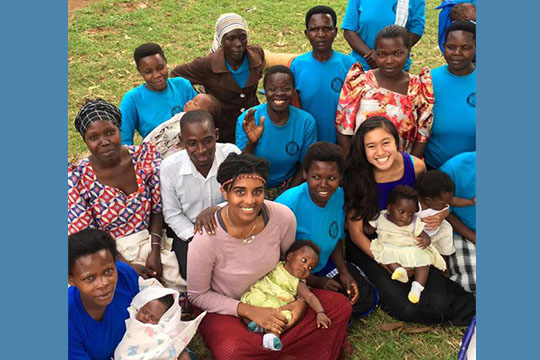
Lessons from Uganda
By Vivian Ho, ’17 (Human Biology)
The drums reverberate in the red dust. The women in the community groups sing to the beat of the drums with a rumble in their voices—a rumble that declares a sense of community, a rumble that states they are effecting change for the issues that matter to them. They are performing dramas about pregnancy, nutrition, and hygiene. The crowd, with over 500 people, is listening.
With the support of a Halper fellowship through the Haas Center for Public Service, I worked with Safe Mothers, Safe Babies (SAFE), a nonprofit organization aimed at reducing maternal mortality rates in eastern Uganda. My time in Uganda challenged my norms and made me evaluate new ones. It forced me to recognize how activism and seeking justice can be loving to the populations who desire to be heard, especially women. It gave me personal stories and examples of frameworks to life that are different from my own, and yet somehow they are not so different. It has given me an itch to recognize the status quo and not be settled in it.
When I left the U.S., I expected simply to do a public health internship in Uganda. By the end of my time there, I realized I had found a family. In the words of a village member, “You have roots here in Uganda. You’re a Musoga.”
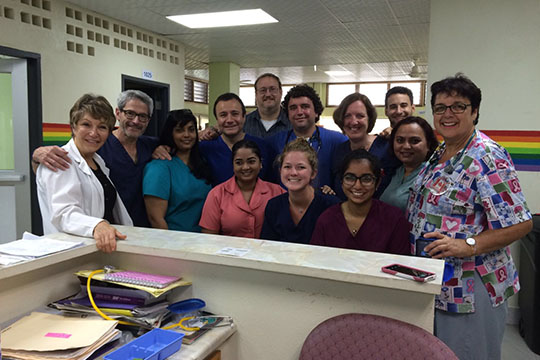
He’s tumor free
By Riasoya Jodah, ’19 (Undeclared)
Three days after my fellowship ended, I got a text message from my former co-workers in our group chat that I couldn’t bring myself to leave just yet. It was a picture of a smiling boy swaddled in blankets with tubes resting beneath his nose. The caption read “He’s tumor free.”
Shawn is an eight year old indigenous boy who was admitted to pediatric surgical ward of the Georgetown Public Hospital Cooperation the day I started my Halper International Fellowship in Georgetown, Guyana. He came in with a near lethal snake bite, but my team also found a mass that turned out to be a Wilm’s Tumor in his kidney. Shawn, like many other patients that I worked with, lives in a remote village and arrived via medivac to the hospital. It’s quite possible that his tumor would have remained undiscovered if he hadn’t been forced to seek care due to the snake bite.
His struggle is familiar to the thousands of indigenous people without access to health care in Guyana. After a grueling 10 weeks of biopsies and treatments, Shawn underwent surgery where the tumor was entirely removed. He’s back home now; a healthy boy with his family. I receive an updated picture whenever he visits the hospital for a follow-up, and it serves as a reminder of the service I owe to the people of my home.
Ria is a 2016-17 fellowships peer advisor.
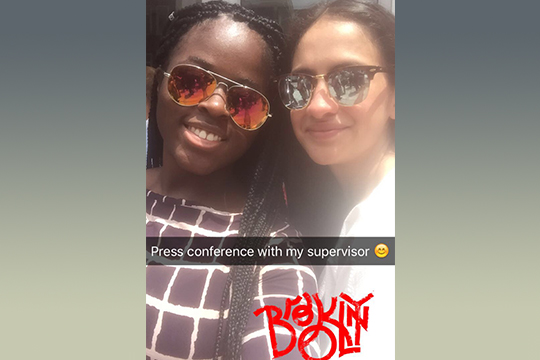
When a house can’t be a home
By Zora Zambezi Williams, ’19 (Undeclared)
No water. No gas. No heat. Bedbugs. Mold. And more. When someone prevents a house from being a home, that is when the Fair Housing Advocates step in. This summer I got to play that role in the fight to preserve the sanctity of home at Brooklyn Legal Services Corporation A (BKA) for tenants in Brooklyn, NY.
I worked on buildings where landlords would offer buyouts to long-term residents in order to renovate and revalue old apartments to market rate tenants. People were harassed out of their homes by landlords with bogus non-payment cases, utility shut offs and refusals to address repair concerns. In one case, a tenant was harassed by the super of her building when he climbed her fire escape and tapped on her window unannounced.
Since these tenants were denied a safe home we, BKA, demonstrated on the steps of City Hall, brought cases to state court, and ultimately galvanized the tenants to organize themselves to take action against their disparate treatment. We reminded them of the power and rights that they have to keep their superiors accountable, because when a house can’t be a home, there are no roots from which a seed can be grown.
Zora is a 2016-17 fellowships peer advisor.
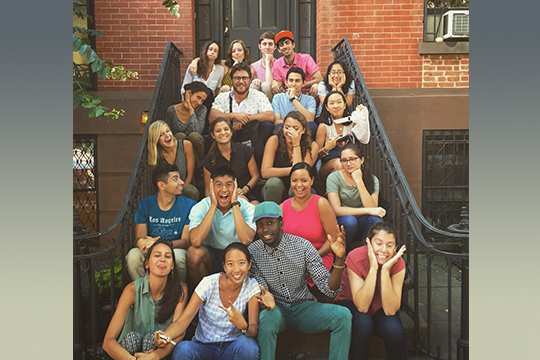
Justice for all
By Bunnard Phan, ’18 (Philosophy and Literature)
My partner and I hunched over the small monitor, downloading the surveillance footage. As investigators for Brooklyn Defender Services (BDS), a public defender’s office in New York, we gathered evidence to support BDS’s cases, and on this day, we’d just recovered video that proved our client’s innocence.
I was relieved, yet stunned. It seemed crazy and unfair how quickly our client’s life had turned upside down: one false and unfounded accusation had caused him to be arrested and jailed, because he wasn’t able to afford bail. How was this possible? Was it because of where he lived or the way he looked? Our client was a year younger than me, and I could only imagine what he and his family had gone through. I wondered, What would have happened if we hadn’t recovered the video?
Investigating cases for BDS made me reconsider my beliefs about our criminal justice system. I began my internship confident that our justice system was a place where truth prevailed and most people got their just desserts. I learned that the reality was not so simple. Speaking with lawyers and judges, I learned about tactics such as overcharging to coerce defendants to accept plea deals. Speaking with our clients, I learned about the consequences an arrest could have, even if our clients weren’t found guilty. Most of all, their experiences showed me how easy it is for someone to be exploited because of their appearance and poverty. My summer opened my eyes to the complexity of our criminal justice system and increased my desire to learn more about how it operates.
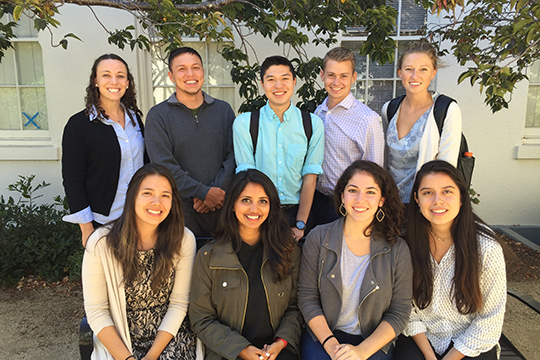
Students learn about philanthropy and social change
Two Cardinal Quarter summer opportunities, the Corporate Social Responsibility Fellowship and the Philanthropy Fellowship, place students with Bay Area corporations and foundations to learn how these organizations work to effect change in areas from sustainability and education to entrepreneurship and grantmaking.
By Amy Harris, ’14
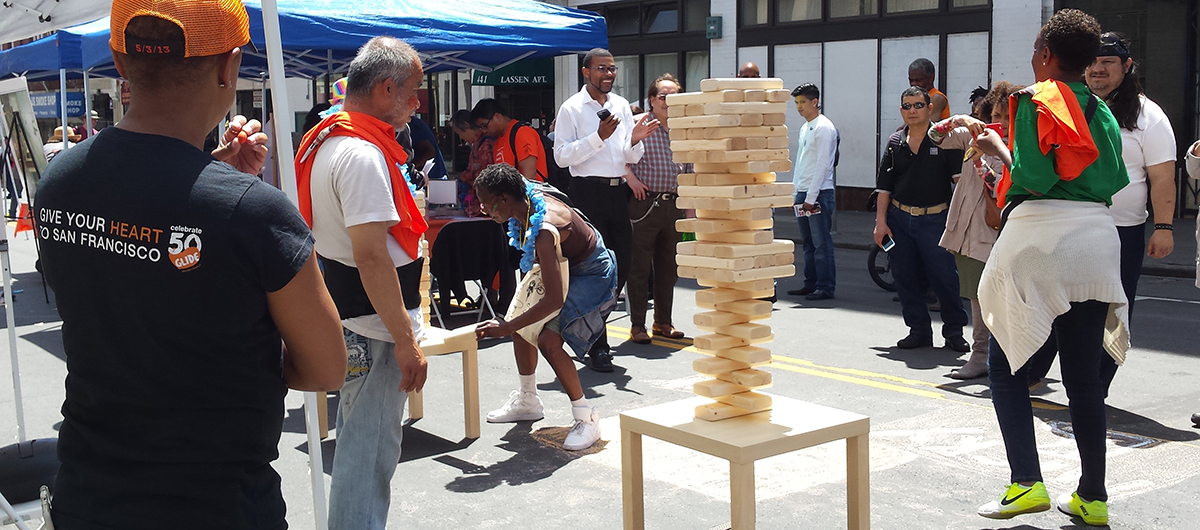
Building community and finding acceptance
Through a summer fellowship, Erica McDowell, ’16, explored service through religion, an interest that grew with her increasing involvement in community work on campus as an ethnic theme assistant at Casa Zapata and as a core member of First Generation and/or Low Income Partnership (FLIP).
By Catherine Zaw, ’15
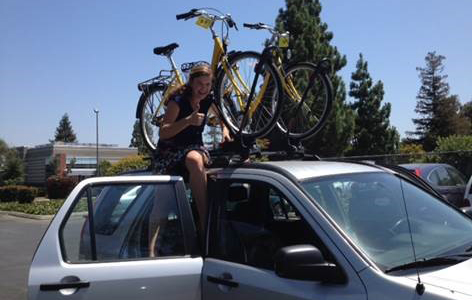
Helping refugees rebuild their lives
By Kirsten Willer, ’17 (International Relations)
“Kirsten! I got the job!” Ahmed said excitedly as he walked into the offices of the International Rescue Committee (IRC) on my last day of work this past summer. I had frequently worked with him in the IRC’s Matching Grant employment program, and he had been recently hired as an electrician. I had helped him refine his resume, attend a job fair, submit his job application, and draft follow-up letters, so I had been by his side through the entire process of finding this job.
Through the Spirituality, Service, and Social Change Fellowship, I interned at the IRC in San Jose. The IRC provides essential services to refugees and asylees in the first 90 days after their arrival in the United States. Throughout the summer, I got to offer my support to many people, like Ahmed, as they rebuilt their lives in the United States.
Although finishing my fellowship was bittersweet, I feel incredibly grateful for the experience. Now I’m considering attending law school so that I can help demystify the legal aspects and challenges of the immigration and resettlement process for other refugees, asylees, and immigrants. Working at the IRC was an invaluable experience, in terms of both learning about the immigration system and witnessing the resilience of the human spirit.
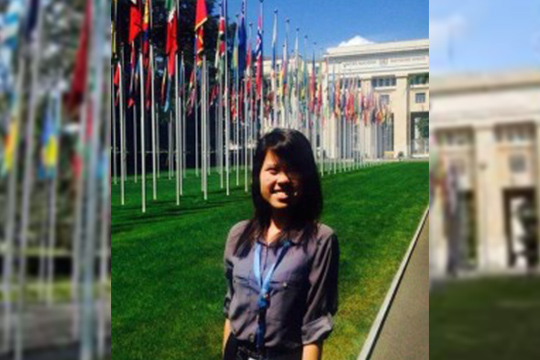
Strategy for humanitarian aid
By Monica Chan, ’17 (Mechanical Engineering; International Relations (minor))
Time: June 2015. Place: Geneva, Switzerland.
Finally, I had arrived for my long-awaited summer internship with the Shelter and Settlement Section of the United Nations High Commissioner for Refugees (UNHCR).
During my 9-week internship, I was taken on board several projects. The most interesting project I was involved in used the UNHCR’s newly developed “Master Plan” concept. The “Master Plan” aims to promote holistic and comprehensive design and development of settlements. My specific project was to develop a plot of land (1500 hectares) in Kenya not only to build a new refugee camp, but also to work towards a more sustainable solution for interaction between the refugee and host communities. I started the first steps by conducting research on the incoming refugee population, tracing out land contours, and studying the county government’s Integrated Development Plan. Drawing multiple drafts of camp designs was a long and iterative process, but essential to developing a settlement that ensures the safety and dignity of refugees.
This summer internship allowed me to merge my three passions – engineering, global affairs and public service. Working with such a qualified, dedicated team at an international humanitarian aid organization has definitely motivated me to educate people on and off campus about refugee crises and to be a more strategic advocate for human rights.
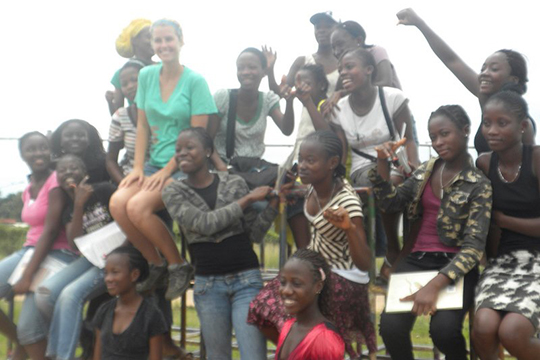
Storytelling as community building
By Gillie Collins,’15 (English, International Relations)
The summer after my freshman year, I found myself crushed into a taxi with five other people, heading to my first day of work in Congotown, Liberia. That morning, it rained in torrents, and the roadside markets were eerily empty: the plantains packed up, the vendors hiding under umbrellas. Approaching the Hope Community Center, I worried that no one would turn up for the workshop.
I was wrong. By 10 AM, fifteen girls with damp clothes had trickled into the classroom. As a group, we decided on a name for our collective, and I wrote it on the chalkboard: “Story Society.”
As a Haas Fellow, I spent the summer facilitating the “Story Society,” a writing and reading program for Liberian girls ages 14-19. Using novels to spark group discussions, individual presentations, and creative writing exercises, we kept daily journals and wrote poetry as a group.
At the close of the program, the girls performed their original stories for their friends and family. Again, the clouds burst, the sky emptied itself — but the Hope Community Center filled to capacity. The girls clapped loudly for each other.
